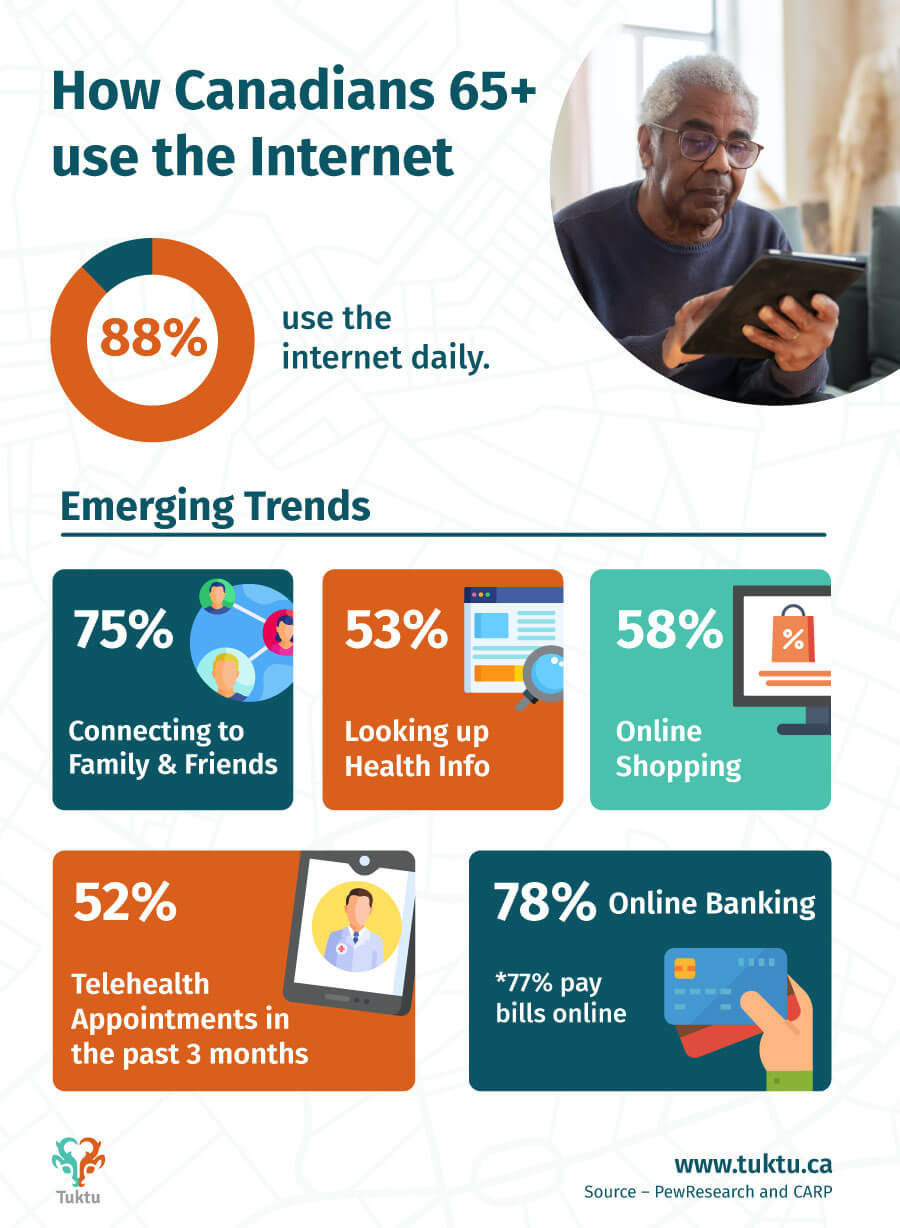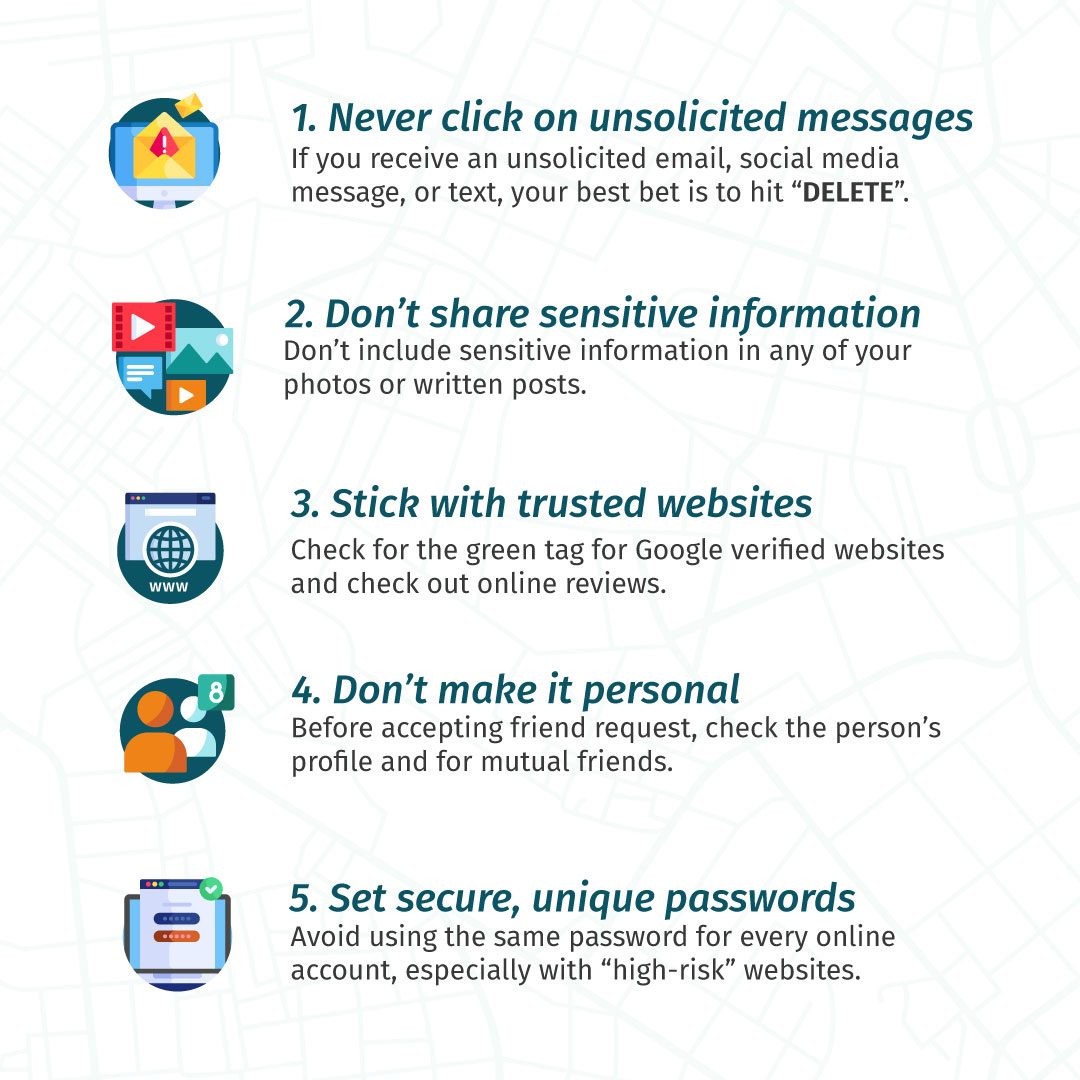No More Financial Abuse

Alvina’s computer screen glowed red, and a menacing message popped up. It listed a number that Alvina had to call to regain access. Her computer was being held hostage.
When 78-year-old Alvina called the number, a scammer told her that it would cost $500 to “clean up her computer” –making Alvina believe that he would help, when he was really trying to take her money to solve a problem he had created.
Alvina didn’t realize she was being scammed. All she wanted was to have her computer work again, and perhaps a little embarrassed that she had done something to get a virus on her computer. So, she paid the $500 to “fix” the problem. And we know, that never got fixed and the worse was to come.
Online Scams Pose a Real Threat
Alvina certainly isn’t alone–online scams are on the rise. According to the Canadian Anti-Fraud Centre, Canadians lost $198 million to online fraud last year. In Nova Scotia alone, older adults reportedly lost $515,000 last year–up from $105,000 in 2019.
What’s driving this sudden increase in online fraud? The pandemic played a major role, as people were spending more time online to stay connected with friends and family. Today, older adults are hardly Luddites:

Common Online Scams
It’s clear that plenty of older adults are eager to use technology to make their lives easier and stay connected. But we often hear that people are hesitant about engaging with technology due to the risk of online scams. The key is to recognize the common types of scams. Here’s a look at some of those that are most often aimed at older adults.
- Fake shopping websites: Scammers run online ads promising bargains, so you click on the ad and place an order. The product never comes, but now someone unscrupulous has your credit card information.
- Phishing emails: Using fake emails and internet domains, scammers send emails, texts, or social media messages that look like they came from a trusted website. Zoom was a popular one during the early days of the pandemic. The recipient is instructed to click on a link, which can allow the scammer to download malware to your computer.
- COVID-19 vaccination scams: Posting a selfie with your vaccination information can give scammers access to your full name, birthdate, and other information they can use to steal your identity. This goes for all kinds of selfies that might include personal details.
- Online romance scams: These frauds aren’t just for online dating sites anymore. Scammers will target people on mobile gaming apps, social media, or anywhere else that people can interact with strangers online. They’ll move the conversation to another platform (such as WhatsApp or email) and eventually convince you they need money. How to Protect Yourself from Online Scams.
How to Protect Yourself from Online Scams

- Never click on unsolicited messages: If you receive an unsolicited email, social media message, or text, your best bet is to hit “Delete”–preferably before you even open the message. On social media, you can also report the sender of an unwanted message, which might help protect someone else from a scam.
- Don’t share sensitive information online: Even if you have your social media profiles set to private, hackers can sneak into your account. Don’t include sensitive information like your name, address, or birthdate in any of your photos or written posts, and don’t share that information in social media messages.
- Stick with trusted websites: Keep a bookmarked list of your favorite online retailers and use those links whenever it’s time to go shopping. Want to try a new site? Check for the green tag (add a png of the tag) for Google verified websites. Take a few minutes to read online reviews and make sure that it’s a legitimate, safe site.
- Don’t make it personal: It can be tempting to connect with new people online, but the risks often outweigh the benefits. Feel free to exchange pleasantries with your new, anonymous Words with Friends opponent, for instance, but be careful taking it any further than that. When accepting a friend request on social media, check the person’s social page, another good way is to see if you have any mutual friends.
What to Do If You’ve Experienced a Scam or Fraud
If you’re afraid that you’ve already experienced a scam or fraud, the first step is to secure your personal information as quickly as possible.
- Change the passwords on all your important accounts and any account that may be compromised.
- If your credit card or bank account has been compromised, contact your financial institution to put a hold on your account and find out about next steps (each bank and credit card company is a little different).
The next step is to get help if you need it. Contact a local seniors advocate or fraud department. You may also want to work with a company like Tuktu, which can send someone to help you regain access to your accounts and make sure everything is properly secured.
Alvina was aware of online scams – and she was quite suspicious about what was happening – but she wasn’t sure who to call. So, she booked a Tuktu for Technology help and was connected to Michelle.
When the scammers realized Alvina might be on to them – one of them called Alvina directly to try and convince her that he was helping and if he refunded the money, he might lose his job.
It was high time, Michelle (Tuktu) to be on the case. She researched online and was able to quickly determine that these guys were up to no good. In short order, Michelle printed the proof to share with Alvina. She rushed over – armed with a stack of evidence – to let Alvina know the people were, as she had suspected, scammers.
Next, she removed the viruses that the scammers had just added. She also took the time to help teach Alvina how to spot a scam. Michelle gave some example scenarios of what another scammer might try – role playing with Alvina to help her better spot a scam – and to help make sure this never happens again.
Don’t share sensitive information online
Even if you have your social media profiles set to private, hackers can sneak into your account. Don’t include sensitive information like your name, address, or birthdate in any of your photos or written posts, and don’t share that information in social media messages.
With the initial crisis averted, Michelle left Alvina to use her virus-free computer to find a recipe and whatever else she’d been searching for.
Each Tuktu service is an experience, and we ensure that you or your aging loved ones are safe and protected. Don’t wait long if you feel suspicious of an online activity and book a Tuktu to #rejectseniorsfrauds and use technology for what it is meant for – making lives easier and simpler.
"Michelle was very knowledgeable, patient, and helpful. She not only helped me with my PayPal issue but also taught me how to create bookmarks for websites and practiced the steps with me." - Alvina & Michelle


